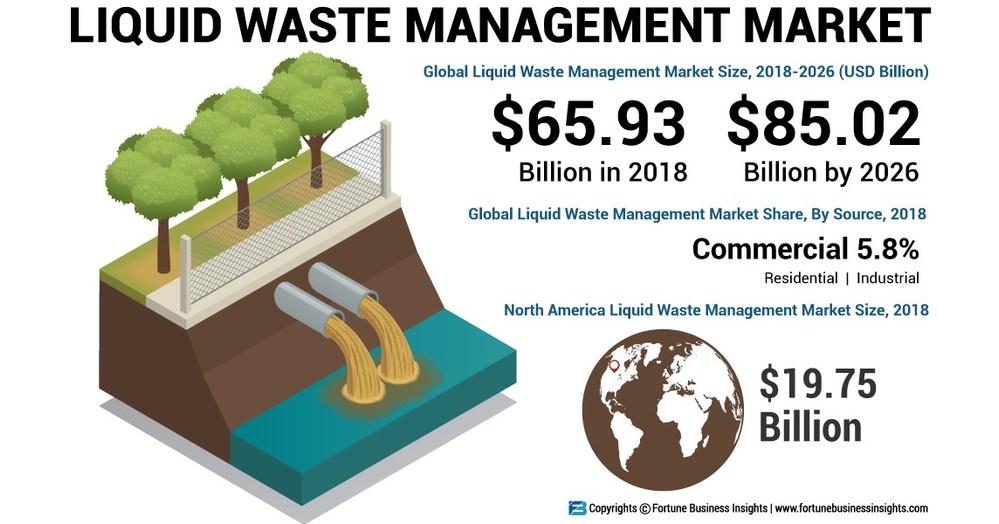The Definitive Guide to Reclaim Waste
Table of ContentsThe Buzz on Reclaim Waste4 Easy Facts About Reclaim Waste ShownTop Guidelines Of Reclaim WasteThe 10-Second Trick For Reclaim WasteThe 10-Minute Rule for Reclaim Waste
With appropriate liquid waste administration, business can minimize energy-intensive therapy procedures and disposal costs. By complying with a system for handling fluid waste, business can prevent costly penalties and charges and stay clear of negative promotion.(https://reclaimwaste1.blog.ss-blog.jp/2024-11-12?1731425991)Collect representative examples from various points within the waste stream to make sure accuracy. Liquid waste, specifically hazardous ones, postures significant threats throughout this action.

Sanitation (e.g., chlorination, ultraviolet light, ozonation) and nutrient removal (e.g., denitrification and phosphorus elimination) are suggested under stringent regulations. Numerous business breached several liquid waste disposal guidelines in current years.
Getting My Reclaim Waste To Work

Shallow containers include liquid waste that is allowed to evaporate via all-natural procedures. This type of disposal is subject to rigorous ecological regulations due to possibly hazardous discharges.
The searchings for should be recorded, examined, and stored not just for entry to regulatory authorities yet additionally for making enhancements in the future. Share info with pertinent stakeholders (e.g., workers, governing government companies, and neighboring areas) to preserve openness and liability.
No matter of the company dimension or sector, there are many challenges connected with this task. Recognizing these can aid them effectively manage their procedures and reduce their environmental impact. makes it difficult to deal with and deal with fluid waste safely. Companies that can't purchase facilities ought to take into consideration collaborating with the public industry for much better remedies.
See This Report about Reclaim Waste
By executing detailed administration systems that include treatment and recycling methods, routine monitoring, threat assessments, and adherence to regional and government policies, industrial facilities can add to the security of groundwater materials, guaranteeing their availability for future generations (liquid waste disposal). Let's look into the significance of reliable fluid waste administration in the commercial field, concentrating on its implications for guarding groundwater sources
The air pollution of groundwater resources because of incorrect fluid waste management in the industrial market has significant effects for human health, agriculture, and the setting in its entirety. Several of the prospective impacts triggered by such pollution include: Polluted Alcohol consumption Water Supplies: As groundwater supplies a considerable section of our alcohol consumption water, pollution from commercial activities can result in hazardous chemicals and microbes entering our water systems, positioning health threats for humans.
Minimized Agricultural Efficiency: Agriculture depends heavily on groundwater for watering; consequently, contaminated water can prevent plant returns, infect farming items, and impact food security. Offered the importance of maintaining groundwater resources, it is important for organizations to take Visit Your URL an aggressive stance in managing their liquid waste properly and avoiding contamination.
The 20-Second Trick For Reclaim Waste
Liquid waste can contaminate land and contaminate waters. Info about dealing with and storing liquid waste, responding to spills and minimizing liquid waste is readily available in the complying with fact sheets and assistance:.
Water, the essence of life, is under consistent hazard from contamination. The role of waste administration experts in securing this precious resource can not be overemphasized. Their solutions include: Septic system and oil catch cleansing: Important for avoiding harmful contaminants from entering our water supply. Polluted water and infected effluent management: Making certain that unsafe liquids are safely removed and treated prior to they can damage our water resources.
Hence, integrating sustainable liquid waste management into economic planning boosts financial stability and protects the atmosphere, demonstrating the value of this approach. Finally, taking on professional liquid waste monitoring practices is vital for guaranteeing a sustainable future, securing our setting and safeguarding the well-being of future generations - liquid waste removal. At E&E Waste, we are committed to promoting a far better tomorrow via accountable activities today.
When it involves taking care of waste, sticking to appropriate procedures is critical for a wide variety of reasons. Correct garbage disposal is not nearly tidiness; it has to do with ensuring the wellness of our setting, health, and the efficient use resources. Comprehending the value of effective waste administration can help all of us add to a much healthier, cleaner world.
9 Simple Techniques For Reclaim Waste
Efficient waste management assists keep clean roads and public rooms, minimizing the visual impact of litter and ensuring that waste does not hurt wild animals. When waste is not thrown away properly, it can bring about pollution, where dangerous substances can leach right into the soil, water supply, and the air, producing long-term ecological problems.